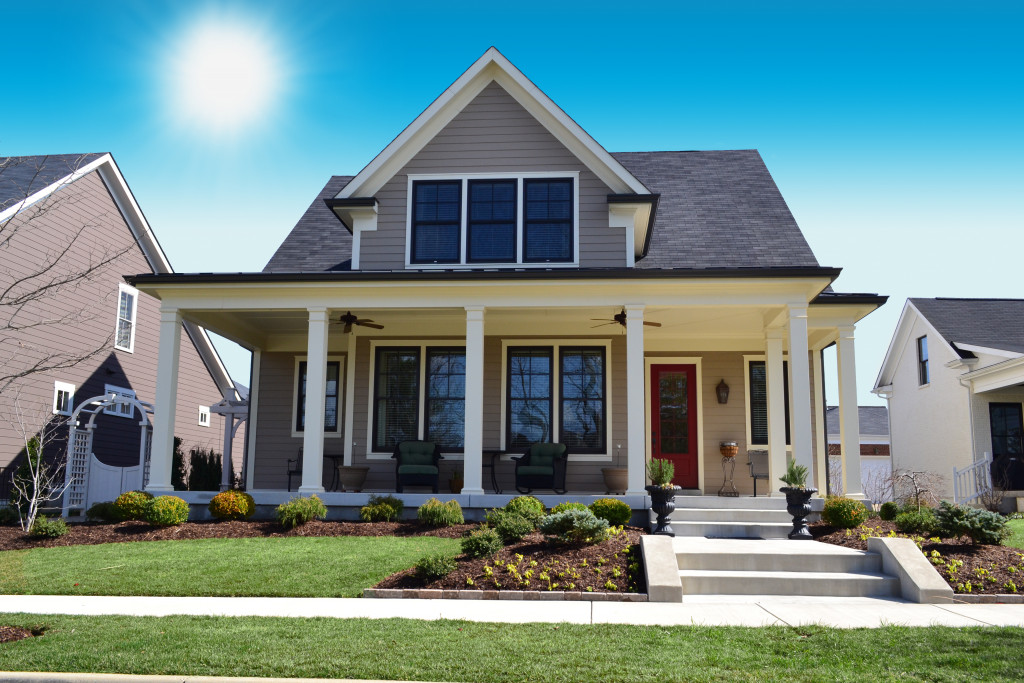- Homeownership provides financial benefits, such as tax breaks and deductions. It also offers emotional satisfaction and pride in ownership.
- Taking out a mortgage loan can make the process more affordable.
- Consider location, size & style, cost & budget, amenities & neighbors when selecting a home.
- Understand legal documents such as purchase agreements and title deeds to ensure a successful purchase.
Buying a home is one of the most significant investments most people make in their lifetime, and there are tremendous benefits to owning your property. Homeownership can provide opportunities for financial security, stability, and social and emotional satisfaction.
For starters, owning a home provides a sense of security and safety. You live in an environment you control, where you can rest assured knowing your living situation is reliable and consistent. Additionally, homeowners can take advantage of tax breaks offered by the government mortgage interest payments are usually deductible from taxes. This helps lower the overall costs of owning a home.
Not only does homeownership bring financial benefits, but it can also provide psychological rewards. It’s been found that homeowners have higher levels of happiness overall than renters due to feelings of stability and control over their environment something that renting doesn’t always provide. There is also a sense of pride associated with ownership after all, you worked hard to purchase your home!
However, buying a home can be a daunting process. After all, it’s one of the most expensive purchases you will make! It’s essential to take the time to do your research and explore all of your options and to be sure that this is the right decision for you. Here are a few tips on how to go about buying a home:
Mortgage Loans

Financial considerations are an obstacle when buying a home, as the costs associated with homeownership can be pretty high. The good news is that mortgage loans can help make these costs more affordable by allowing you to spread out payments over a more extended period.
Mortgage loans enable you to borrow money from a lender, so you don’t have to pay the entire house cost upfront. This could save thousands or even tens of thousands of dollars in upfront fees and help make homeownership an achievable goal for many people.
Additionally, depending on your situation, some lenders may offer attractive rates or other incentives to help make owning a home more affordable and attainable. Finding different options will be necessary, allowing you to compare offers that best suit your budget and needs. You can research reliable mortgage companies to understand what’s available.
The Right Home Options
Choosing the right home is essential to enjoying the long-term benefits of homeownership. While investing in a home can be exciting, finding the perfect fit is necessary. Doing extensive research and carefully considering all factors will help you make a sound decision that best reflects your needs and preferences. Here are essential considerations when selecting the right home for you:
Location
Location is one of the most important factors when buying a home. It’s essential to consider what type of environment you want to live in do you prefer living in an urban or suburban area? Do you need to be close to public transportation? Are there any recreational activities or attractions nearby that are important to you? Considering these details will give you a sense of what type of home might best suit your lifestyle.
Size & Style
It’s also crucial to consider how much space you need and what style suits your taste. Consider whether a single-family home or condominium is better for you and if certain features like extra bedrooms, bathrooms, or balconies would add value for yourself or potential guests. Asking yourself these questions can help narrow down which types of homes may fit your needs best.
Cost & Budget
Financial considerations are another critical factor when selecting a new home. Decide on a budget beforehand including mortgage payments, closing costs, taxes, repairs, and more and then stick with it! Don’t overextend yourself financially to get specific items that won’t truly benefit your quality of life long term. The key is finding an affordable home that meets your current and future needs without breaking the bank in either situation!
Amenities & Neighbors
Finally, remember never to underestimate the importance of amenities! Consider what type of setting would make you feel most comfortable from schools and parks for families with kids to public transportation hubs for easy commuting knowing what kind of lifestyle appeals most will help determine which property is right for you. Also, consider who your neighbors will be; investigate local crime rates and information about public services such as garbage pickup and street repairs so that these issues don’t surprise you.
Legal Documents

It’s essential to understand all legal documents related to purchasing a home. Acquire a lawyer if necessary, and leverage available resources such as local real estate agents or financial advisors who can provide invaluable advice. These professionals can help you make an informed decision by understanding contracts, comparing mortgage rates, finding the best loan options, and more!
legal documents you’ll need to consider include:
- The purchase agreement, the document that outlines the details of what you’ll pay for the home
- The title deed or contract, which proves your ownership
- A loan document if you are taking out a mortgage on the property
- An appraisal of the house and any additional inspections
Final Thoughts
Buying a home can be intimidating, but preparing yourself correctly can help alleviate stress. With the proper research and preparation, you can ensure that you choose the perfect property that fits your needs now and in the future! Be sure to consider all of these tips when purchasing your new home.




